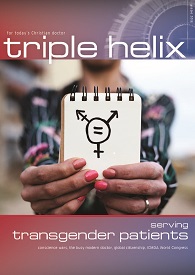New draft guidance from the BMA allows doctors to withdraw food and fluids from non-imminently dying patients with dementia, stroke and brain injury, provided it is in their 'best interests'. (1),(2)
It comes complete with a six-page executive summary, flow charts and tick box forms to smooth the decision-making process. Definitive guidance is due out in mid-November.
Who makes these decisions? If there is an advance directive for refusal of treatment (ADRT) then the patient does. If there is an appointed health and welfare attorney then they do, and if it's not the case that 'all parties agree' then it falls to the Court of Protection. But in the remainder of cases - the vast majority - it is 'usually a consultant or general practitioner'.
What are these best interests? It boils down to whether CANH (clinically assisted nutrition and hydration) can 'provide a quality of life the patient would find acceptable'. Otherwise, continuing to provide it is 'forcing them to continue a life they would not have wanted'.
So, by a subtle twist, providing basic sustenance to someone who 'would not have wanted' to be in this 'condition' is a form of abuse.
Quite how oversight or accountability will be possible is unclear, as the death certificate need not make any reference to the fact that the patient died from dehydration after a feeding tube was removed. Instead 'the original brain injury or medical condition should be given as the primary cause of death'.
What is largely disguised here, in a lengthy and turgid 77-page document that few doctors or carers will ever read, is a simple mechanism for ending the lives of brain damaged patients who could otherwise live for months, years or even decades.
There are conceivably tens of thousands of patients in England and Wales potentially caught in the net. It will be almost impossible to work out what has happened in a given case, and there are no legal mechanisms in place for bringing abusers to justice.
How did we get here? This whole process has transpired by a small series of steps - each following logically from the one before and endorsed in case law, statute law, regulations and guidelines. They stem back to the Law Lords' decision on Hillsborough victim Tony Bland, who was the first to die in this way. But this trickle could be about to become a flood. (3)
Once we accept that CANH is 'medical treatment', rather than basic care, then we are inviting professionals to devise a simple scheme whereby the starvation of large numbers of non-dying but expensive and 'burdensome' patients can be achieved simply and efficiently, and largely undetected, without involving the courts.
Review by Peter Saunders, CMF Chief Executive
































